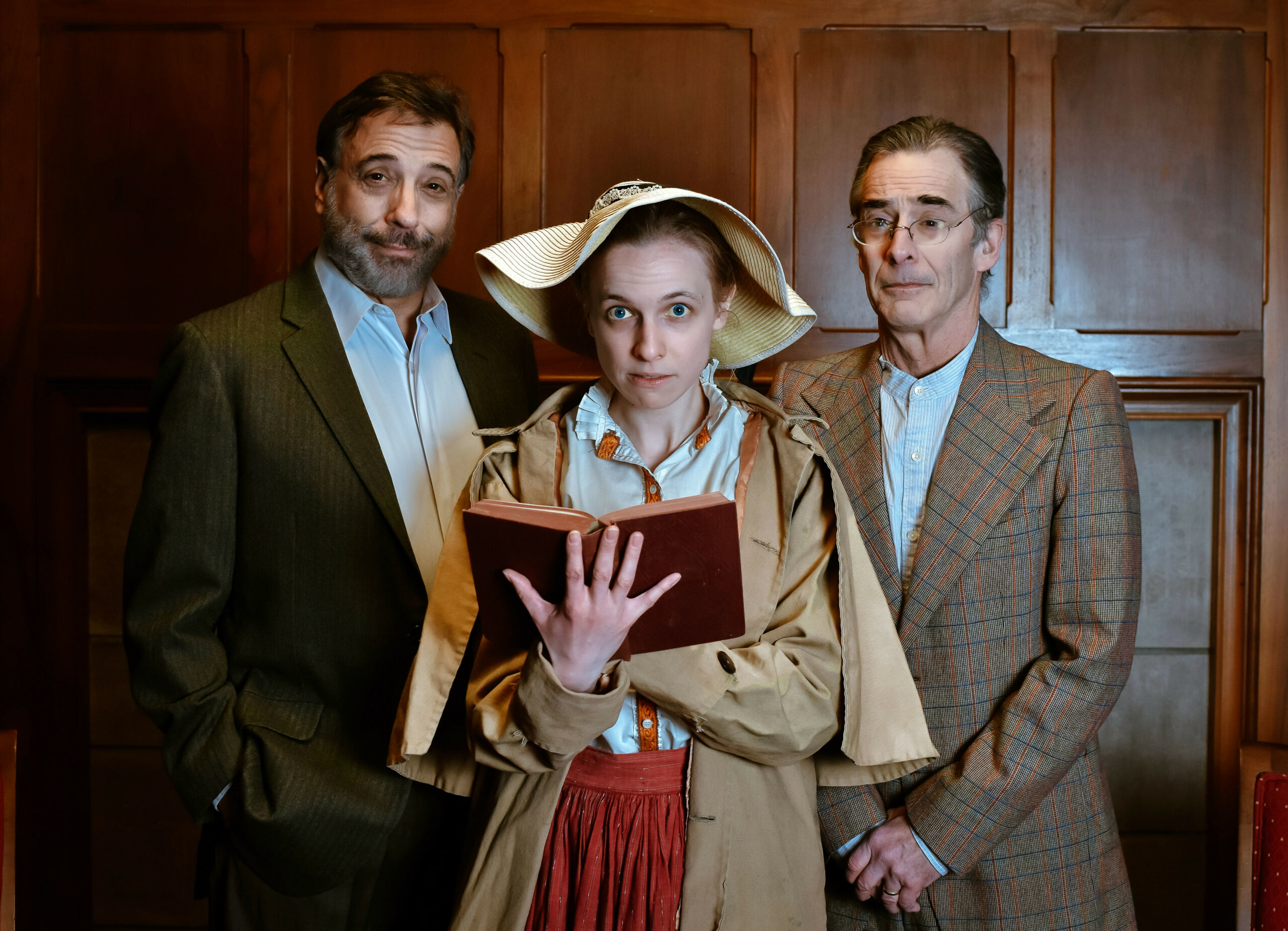By George Basler
By chance, an egotistical phonetics expert meets a Cockney flower girl and decides to show off his expertise by turning her into a “lady,” who can pass as a duchess in bourgeois English society.
For musical comedy fans, the story is instantly recognizable as the plot for Frederick Loewe and Alan Jay Lerner’s beloved musical My Fair Lady. But hold on a minute. Lerner and Loewe didn’t originate the plot. They adapted it from Pygmalion by George Bernard Shaw, a famous and controversial Irish playwright known for verbal wit, utter disregard for convention and his public image as a social gadfly.
The Summer Savoyards will stage Pygmalion, considered one of Shaw’s comic masterworks, at Binghamton’s Bundy Museum of History & Art beginning Friday (March 10) and running for two weekends.
The company picked the play because it is a classic with serious and funny notes, a great story and great characters, said Mary Donnelly, an associate professor in the English Department at SUNY Broome, who is directing the production.
Donnelly emphasized that those who only know the plot from My Fair Lady are in for some surprises. Pygmalion presents a less romantic and more ambiguous ending. The play also casts a more critical eye at the British class system, which Shaw detested.
“Shaw always had a social point (in his work),” Donnelly said. In Pygmalion he attacked the artificiality of the class system and struck a blow for female empowerment. “Shaw was a feminist and was acutely aware of the limits placed on women in his society,” Donnelly said.
The Summer Savoyards, founded in 1961, are known for annual summer productions of Gilbert and Sullivan operettas. Pygmalion is the third straight play that the company has presented in the late winter as a fundraiser. (The other three: Arsenic and Old Lace, The Importance of Being Earnest and Playboy of the Western World.)
“Our sweet spot for the Savoyards is the Victorian and Edwardian eras,” Donnelly said, noting Pygmalion is very much like Gilbert and Sullivan in being a comedy about social mores.
Donnelly is directing a 10-member cast in this production, with the key role of Henry Higgins, the pompous phonetics expert, being played by Mark Roth, who has appeared in a number of local productions over the years and is active with Southern Tier Actors Read.
Roth describes Higgins as self-confident and playful but also “a victim of his own short-sightedness and ego, even though he doesn’t realize it.” It’s a fantastic role to play, Roth said, adding that he “loves” playing the words Shaw wrote for the character.
Samantha Sloma is playing the flower girl, Eliza Doolittle, the flower girl. Sloma’s credits include appearances with the Ithaca Shakespeare Company and in the immersive Hamlet done at the Phelps Mansion Museum in Binghamton.
Sloma said Eliza is challenging vocally, because she must employ both a Cockney and an upper-class British accent. At the same time, Eliza is “such an interesting role” because of the richness and nuances in Shaw’s script, she noted.
Eliza goes “through the journey to self-respect and learns how to be in the world and how to craft her own identity,” Sloma said.
Starting with its first performance in 1913, Pygmalion has arguably become Shaw’s most popular play. The 1938 film version starring Leslie Howard and Wendy Hiller won Shaw an Academy Award for his screenplay, but he hated the happy ending tacked on by the film’s producer. (He wanted the Higgins/Eliza relationship to be left unresolved.)
The Savoyards are presenting Pygmalion as Shaw originally wrote it, Donnelly said, including his ambiguous ending and lines spoken by Higgins that “are a little eyebrow-raising” by today’s standards.
“It has some funny scenes and funny bits, and some really heavy scenes towards the end,” Roth said. He doesn’t think the play is dated at all even though it’s more than 100 years old. Whether the play is a feminist manifesto, a social commentary or a romantic comedy will be left up to audience members to decide.
IF YOU GO: The Summer Savoyards will present George Bernard Shaw’s Pygmalion at the Bundy Museum of History & Art, 127-129 Main St., Binghamton. Performances are 7:30 p.m. March 10, 11, 17 and 18 and 2:30 p.m. March 12 and 19. Tickets at $25 are available at www.summersavoyards.org/pygmalion.



































